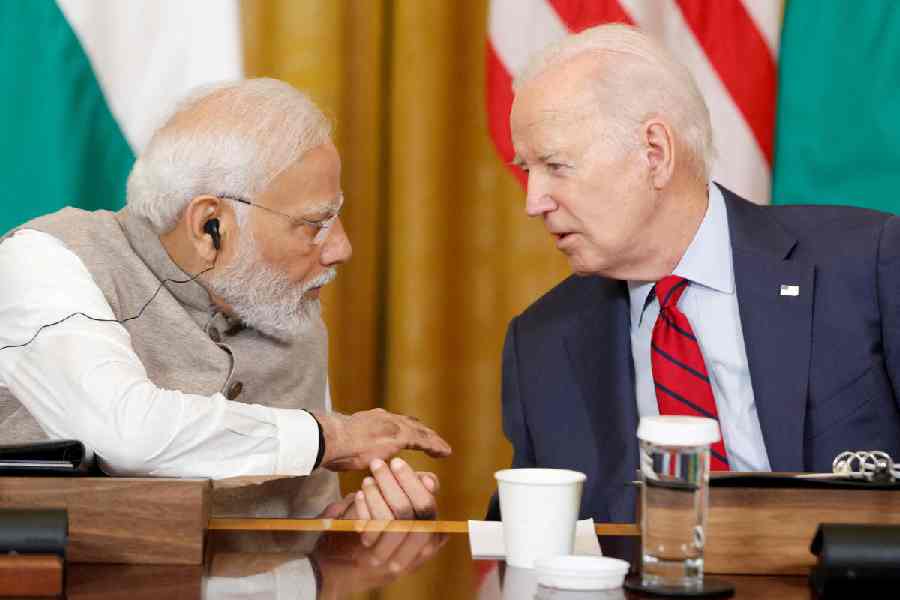The US foiled a plot to kill pro-Khalistan American citizen Gurpatwant Singh Pannun, who is wanted in this country and who recently issued a warning to Sikhs not to fly on Air India. The US is also said to have warned the Indian government that it should not have any involvement in such a conspiracy, the Financial Times has reported.
The FT said that details about the secret plan were not known and it was unclear whether the brakes had been slammed on the plot because of the warning or whether it had been a scheme that had been thwarted when it was already in motion.
Pannun is general counsel of a US-based organisation Sikhs for Justice which advocates an independent Khalistan state. Contacted by the FT, Pannun who appears to live in the US reacted nonchalantly, saying: “Let the US government respond to the issue of threats to my life on American soil from the Indian operatives.” He added: “The threat to an American citizen on American soil is a challenge to America’s sovereignty, and I trust that the Biden administration is more than capable to handle any such challenge.”
The National Investigation Agency filed a case this week under charges relating to terrorism against Pannun after he caused considerable alarm when he issued what appeared to be a warning that Sikhs should not fly on Air India because it might be “life-threatening”. Pannun’s warning, circulated in a video on social media, was interpreted as a threat that an Air India plane might suffer the same fate as AI 182, which in June 1985, disintegrated in mid-air over the Atlantic after it was blown up by Khalistani terrorists. A second bomb placed on an AI flight to Japan, exploded after the plane had landed.
Pannun insisted to Reuters that his message was to “boycott Air India, not bomb.”
The FT said the US issued a diplomatic warning to India in the weeks after Prime Minister Narendra Modi paid a state visit to Washington. Crucially, it added that “federal prosecutors have filed a sealed indictment against at least one perpetrator of the plot in a New York district court.”
The FT report comes two months after Prime Minister Justin Trudeau said there were “credible allegations” that India was involved in the assassination of Canadian Sikh separatist Hardeep Singh Nijjar in a Vancouver suburb in June and expelled an Indian diplomat.
India angrily dismissed the allegations as “absurd” and stopped the issuing of all visas to Canadians. Canada also withdrew 41 of its 62 diplomats from India after New Delhi threatened to lift their diplomatic immunity.
New Delhi hasn’t commented so far on the US allegation. The US National Security Council says it doesn’t comment on intelligence discussions with its partners. “Upholding the safety and security of US citizens is paramount,” the US government said.,
But in an indication of significant easing of tensions with Canada, India on Wednesday lifted its ban on issuing electronic tourist visas to Canadians after resuming services for entry, business, medical and conference visas for Canadians. India had said that it was suspending its visa operations because of “very significant concerns about terrorism, about security of diplomats, of the Indian community.”
The newspaper said that the US Justice Department was wondering whether to unseal the New York indictment and go public with it or wait until the Canadian investigation into the killing of Nijjar is completed. One individual charged in the indictment is said to have already left the US, the FT reported.
The US government is said to have informed close allies – probably the countries referred to as the Five Eyes which include Canada, UK, Australia and New Zealand – about the plot to kill Pannun. Washington faces a dilemma about the Pannun plot, said the FT because, “Any public disclosure of the US plot, and Washington’s protest to New Delhi, would renew questions about India’s reliability as a trusted partner.”
India accuses countries like Canada and the UK of being too lenient towards individuals against whom arrest warrants have been issued in India and who issue inflammatory statements and also possibly guide terrorist activity in this country. In particular, S. Jaishankar, the minister for External Affairs, told a Washington thinktank that Canada had a “very permissive” attitude to Sikh separatists and argued that this was because of the government’s desire to court the votes of Canada’s large Sikh population.
Washington has pressed India to help the Canadian investigation into Nijjar’s death. But it has been restrained in its public criticism of India, a member of the Quad security group, over the Nijjar killing as it is keen to keep New Delhi onside as part of a broader strategy to counter China.
Canada traditionally works closely with the US on intelligence matters.
Biden is reported to have raised the Canadian case with Modi at the G20 summit in September. Trudeau said he told Modi in “no uncertain terms” about Canada’s dismay at India’s alleged involvement in the Nijjar killing but received a sharp rebuff.
According to the US ambassador to Canada, David Cohen, the intelligence-sharing network “Five Eyes” – which is made up of the US, UK, Australia, New Zealand and Canada – gave Ottawa information in September about the Nijjar case.
Indian authorities had designated Nijjar a terrorist. He had been working to organise an unofficial referendum on independence among the Sikh diaspora, when he was killed.











